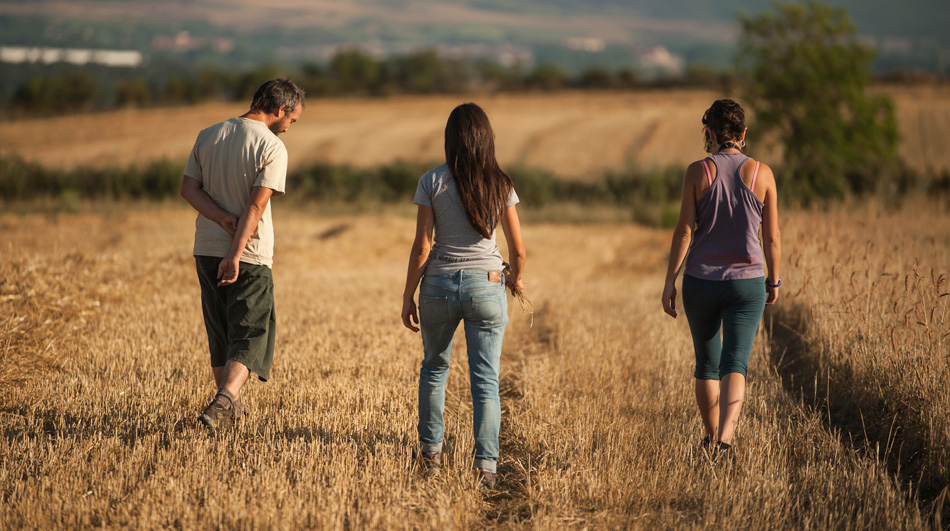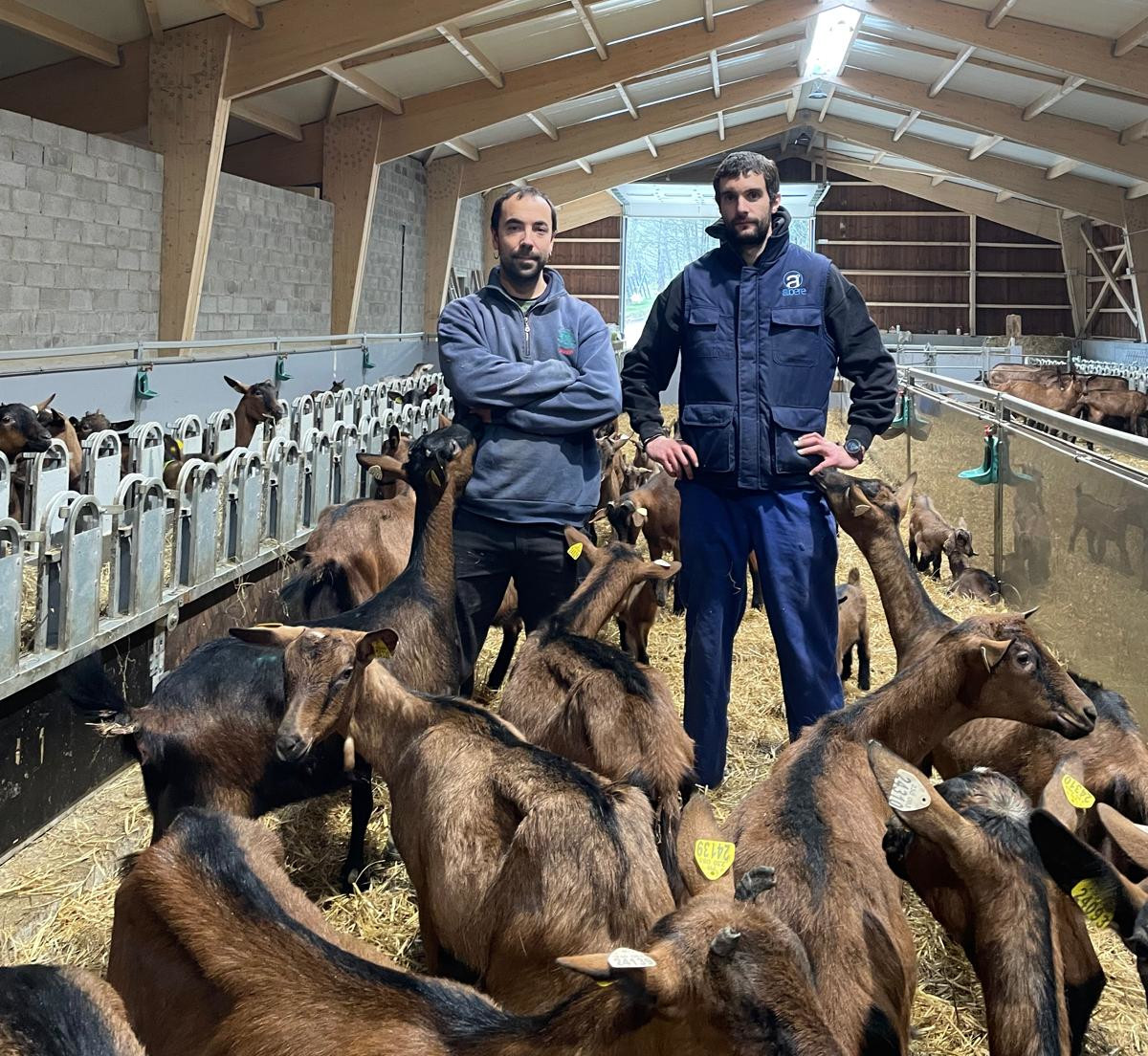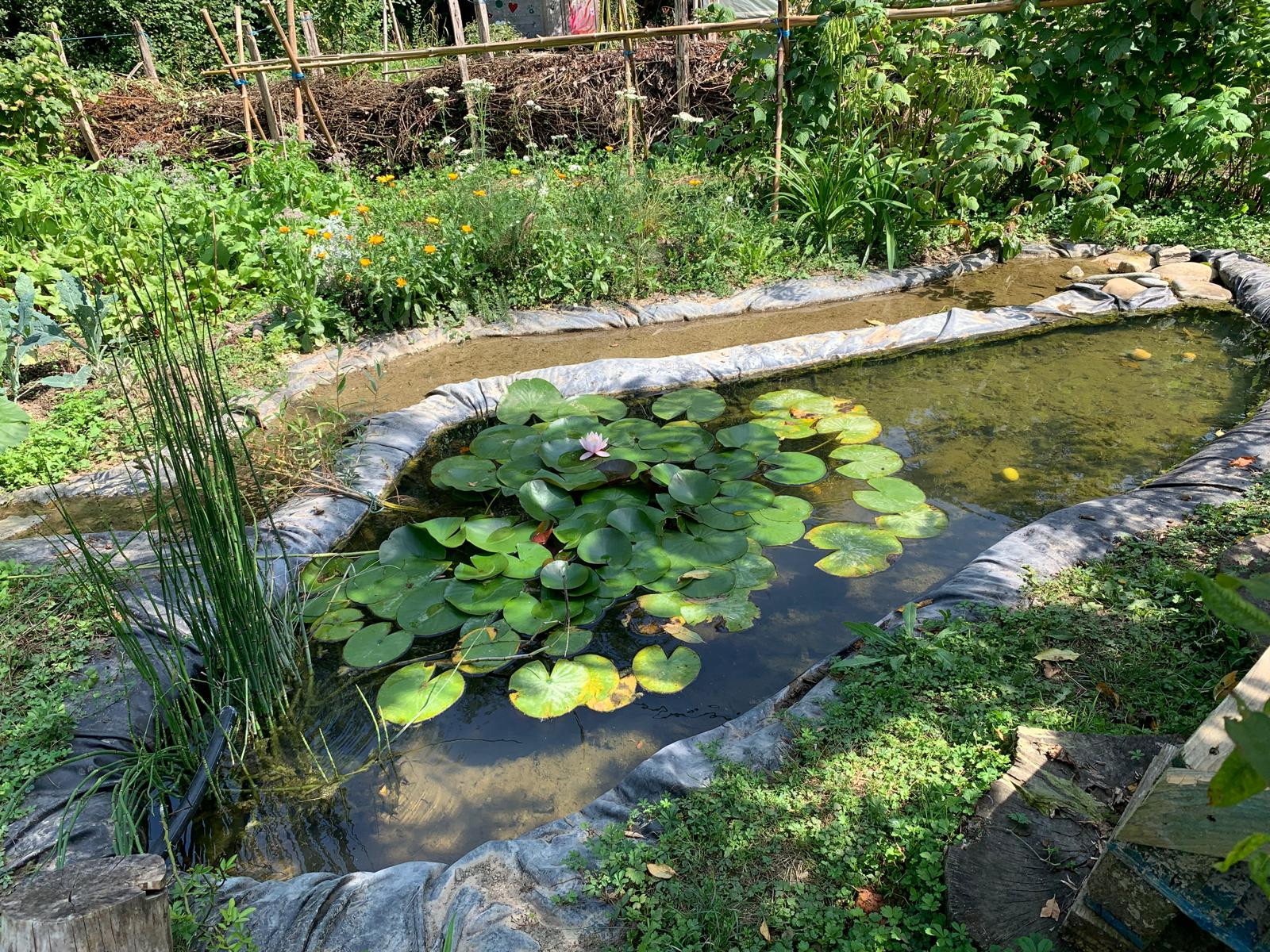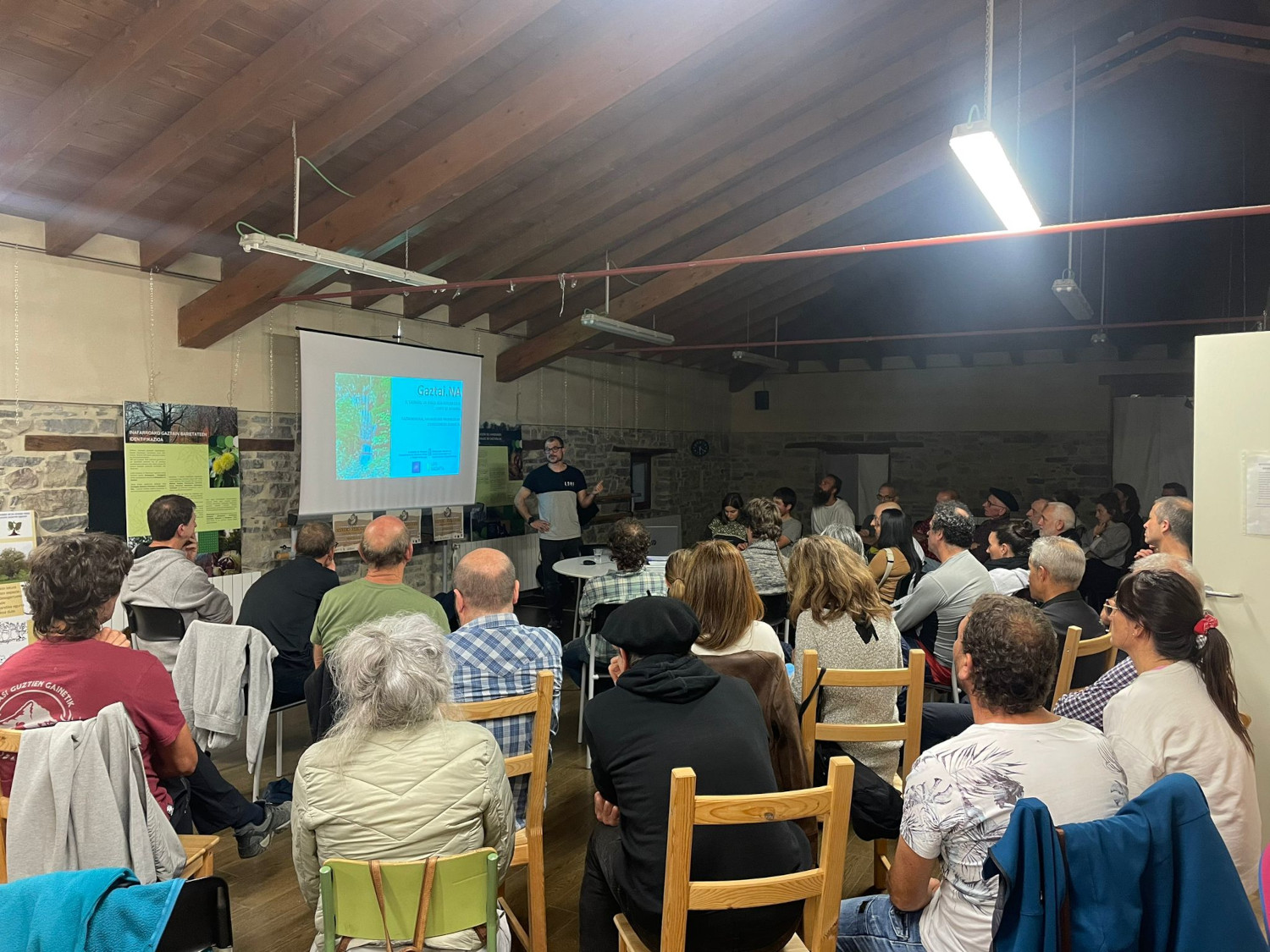Foreign exchange farming

Tierrapapeltijera is an agroecological project located in Salcedo, west of Álava. Ramón Roa and Mónica García started the project in 2009, and recently a third member has been incorporated into the project. It is mainly devoted to organic horticulture, as well as to the production of legumes, wheat and cereals. As explained by Roa, it is also a project that aims to promote social transformation: “We don’t like how society is organized, and we are on the way to change it, acting according to our possibilities.”

Sustainable life project
Working among equals and respecting nature is the basis of the Tierrapapeltijera projects. More than a trade, they understand what they have put in place as a whole life project. “We decided to act on this because agriculture is at the core of life. I worked with a Valencian organic vegetable producer before coming here and the idea has been to bring that model,” explains Roa. Upon their return from Valencia to Álava, they first began to cultivate a land from their parents, and although at first they produced it for their house, they immediately began to sell vegetables.
In the first years there were about 15 baskets, but today some 60 families are already fed in the area of Vitoria-Gasteiz and Miranda de Ebro. “We offer seasonal vegetables in baskets, produced in agroecological model and marketed through direct selling.”

Part of the farmers' network
90% of the products that are manufactured are sold closely in Tierrapeltijera. And to give a boost to this nearby production consumption network, they are part of the producers’ fair held in Valdegovía on the first Sunday of each month: “This market emerged from the producers, there is no funding or any public or private institution behind the fair.”
The project is also present in other farmers’ movements related to agroecology: In Álava they are immersed in the collective marketing project Bionekazaritza and Saski Barazki and are part of the EHKOlektiboa project of the agroecological farms of Euskal Herria. “We are immersed in these movements and networks because we believe it is important that the voice of farmers is heard, as the realities of the primary sector and the rural environment are often hidden.”
Ubidekoak (Bizkaia) dira Imanol Iturriotz eta Aritz Bengoa gazteak. “Lagunak gara txikitatik, eta beti izan dugu buruan abeltzaintza proiektu bat martxan jartzeko ideia”, azaldu du Iturriotzek. Nekazaritzari lotutako ikasketak izan ez arren, baserri munduarekin eta... [+]
Iruñean bizi ziren Iñaki Zoko Lamarka eta Andoni Arizkuren Eseberri gazteak, baina familiaren herriarekin, Otsagabiarekin, lotura estua zuten biek betidanik. “Lehen, asteburuetan eta udan etortzen ginen eta duela urte batzuk bizitzera etorri ginen”, dio... [+]
Gipuzkoako hamaika txokotatik gerturatutako hamarka lagun elkartu ziren otsailaren 23an Amillubiko lehen auzo(p)lanera. Biolur elkarteak bultzatutako proiektu kolektiboa da Amillubi, agroekologian sakontzeko eta Gipuzkoako etorkizuneko elikadura erronkei heltzeko asmoz Zestoako... [+]
Emakume bakoitzaren errelatotik abiatuta, lurrari eta elikadurari buruzko jakituria kolektibizatu eta sukaldeko iruditegia irauli nahi ditu Ziminttere proiektuak, mahai baten bueltan, sukaldean bertan eta elikagaiak eskutan darabiltzaten bitartean.






















